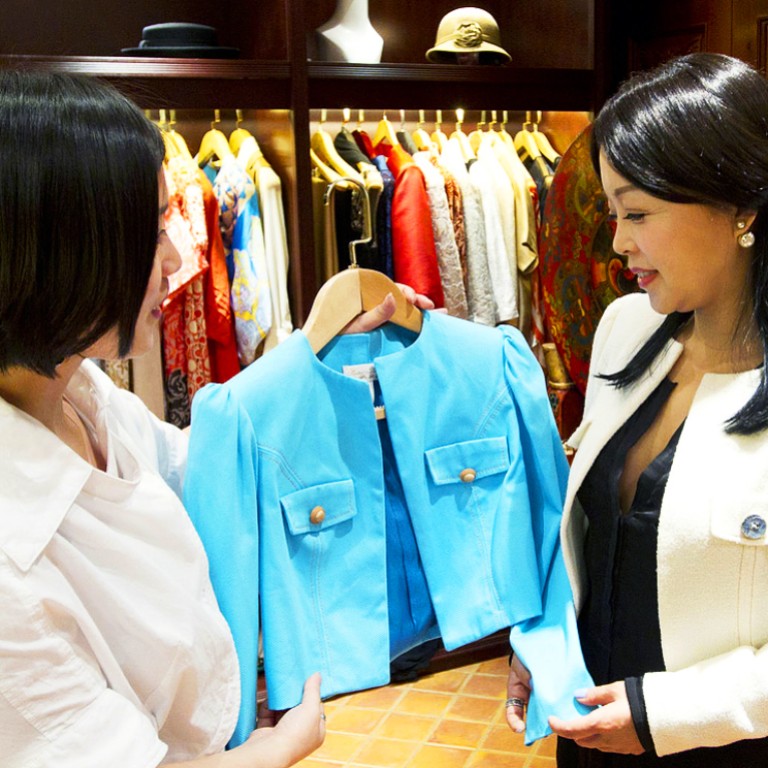
A matter of taste: China's wealthy turn to personal stylists
Advising the wealthy on style is big business for companies like Ximan Colour, which tells its clients how to dress, shop and even speak
In a tastefully decorated room in Shanghai's Westgate Mall, Ada Wang stands in front of a carved wooden mirror, studying the velvet blue dress she has just put on. She is handed a white Japanese-made silk scarf to match the imported French dress, and is told it makes her appear more elegant and sophisticated.
Wang is not in a shop, but the VIP room of a personal fashion consultant. Wang, 43, is a self-made businesswoman, the general manager of a logistics company in the mainland's largest city. Yet she is more confident managing 400 employees than she is about her personal image.
Two years ago, Wang sought the advice of Ximan Colour, a high-end personal styling company that has given her advice ranging from applying make-up to reorganising her wardrobe, and taken her on shopping tours and overseas fashion study trips.
So far, she has spent more than 500,000 yuan (HK$630,000) on the company's service.
"I think the money I've spent here has been worth it," she said.
"I feel like a different person with a new look. It makes me more confident in front of my husband and working partners."
Le Huiling, a veteran stylist with Ximan, said the Shanghai office had about a hundred VIP customers. These include entrepreneurs, television hosts, university professors and government officials. Their average age is 35 to 50 and they spend about 500,000 yuan a year each.
The most common mistake among them, Le said, was to buy only expensive brands, and to dress in unsuitable styles.
Wang was one such customer. She had little time for shopping, so she would buy 10 to 20 pieces on each shopping tour.
"Usually, I wouldn't consider anything priced below 2,000 yuan. I believed that higher prices meant better quality and taste," Wang said.
She preferred to buy black suits and dresses, which she thought made her look slimmer.
But her ideas changed after stylists suggested colours like light pink and light blue. They advised her to cut her hair short to look sassier.
On top of the basic services, Ximan gives private lessons on speaking and poise, as many clients speak at public events and attend conferences.
Every two months, the company organises tours to destinations like Japan, France and Britain to "improve members' fashion taste in all aspects". The trips cost between 50,000 yuan to 110,000 yuan.
Le was one of the mentors on a Mediterranean cruise last year.
"During the trip, we advised members what to wear for different occasions - an evening dress to the captain's dinner, a tuxedo or black dress for events like art auctions, and casual wear for dinners on the deck," she said.
"There are even slight differences when dining at a French restaurant or an Italian one. We suggest ladies wear more formal and gorgeous gowns to French meals."
Weishang, a personal image consultancy in Beijing, launched a similar service in 2006.
Sun Yan, the company's founder, said the Chinese had become wealthy very quickly over the past few decades, but their fashion sense had improved relatively slowly.
"In mature markets like Japan and Europe, personal styling as an industry is already in decline. But it is still rising in China as more and more wealthy Chinese begin to realise the importance of good taste in fashion."
